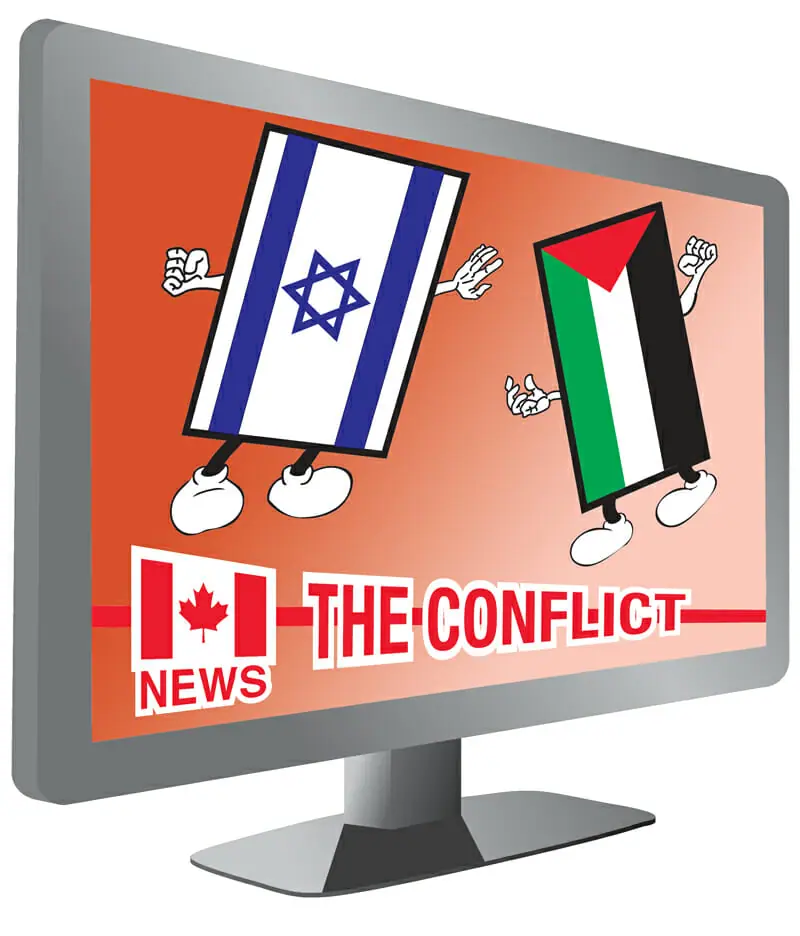As international citizens, we should focus our energy on more pressing matters
When it comes to international issues, most people don’t take notice until the problem has a direct impact on their lives. Whether it’s poverty, environmental damage or war, people hesitate to get involved until there is an immediate and personal reason to do so. Though this rule of thumb generally holds true, it flies right out the window with the issue of Israel and the occupied Palestinian Territories.
The Western obsession with this conflict is peculiar, evident from the continuous stream of propaganda from both sides found in the media. A look at university campuses across Canada reveals a range of anti and pro-Israel groups active at any given time. Honest reporting and analysis has become challenging to find, and as the issue becomes more polarized, even something as simple as a research partnership between a Canadian university and an Israeli one is enough to spark fierce, embittered debate.
Many Canadians voice strong opinions on the Israeli-Palestinian conflict. Yet, ask these same people about the uprising in Syria, the Colombian Armed Conflict, or the insurgency in Yemen, and the conviction of their words falls flat. Where are the speakers and groups rallying for or against the issue of al-Shabaab banning aid organizations in famine stricken Somalia? What about the estimated 500, 000 people currently detained in China without trial? How many of the people who will attend pro or anti-Israel campus demonstrations in March attended a Truth and Reconciliation Commission of Canada event to acknowledge the injustices done by the Canadian government to Aboriginal and First Nations peoples? Even given the relevance and urgency of this last issue, my guess is not many.
Though neither the actions of either side in the Israel-Palestine conflict should be condoned, a little perspective is needed. It is one mess among many, yet receives the bulk of the attention.
There are a host of potential reasons for this, each as controversial as the issue itself. Perhaps governments are trying to appease wealthy oil-bearing Arab countries, or conversely, to appease the wealthy Jewish electorate. Perhaps it’s anti-Islamism or anti-Semitism. Perhaps it is because Israel is a developed country, and we of the developed world wish to make an example of them. Yet most Canadians would be shocked and appalled by the living conditions and rights offenses on native reservations in our own country.
Whatever the reason, as international citizens, we cannot allow ourselves to be distracted by a single issue. If a small fraction of the passion and attention placed on Israel was focused on other conflicts, the resources might be available to solve them more quickly and effectively. Furthermore, before pointing the finger at others, it may be that we should take a hard look at the issues within our own country.
For those who believe that Israel-Palestine should dominate our attention, I ask this of you: Put an end to the proselytizing from afar. Get on a plane and go speak to Israelis and Palestinians. Cross the wall yourself. Get involved with local non-profit groups who are trying to build bridges between divided peoples. People working diligently and effectively towards peace are not hard to find.
When I stood at the wall, I was humbled. I lost my convictions about the conflict, who was the aggressor and who was the victim. I realized that the information I had been receiving in Canada was deeply polarized, further aggravated by the similarly ill-informed opinions of those around me.
Whether or not we have a duty to actively participate in ending international conflict is debatable. What is clear is that as international citizens, we are obliged to not make things worse. If we intend to comment on international conflicts, we must be objective and fair and accord all of the conflicts worldwide the attention they deserve. Pontificating on one issue from here—out of context and thousands of kilometers away—does more harm than good.
If we want to truly be of use, we should get educated and do something about the issues we are passionate about.



Recent Comments